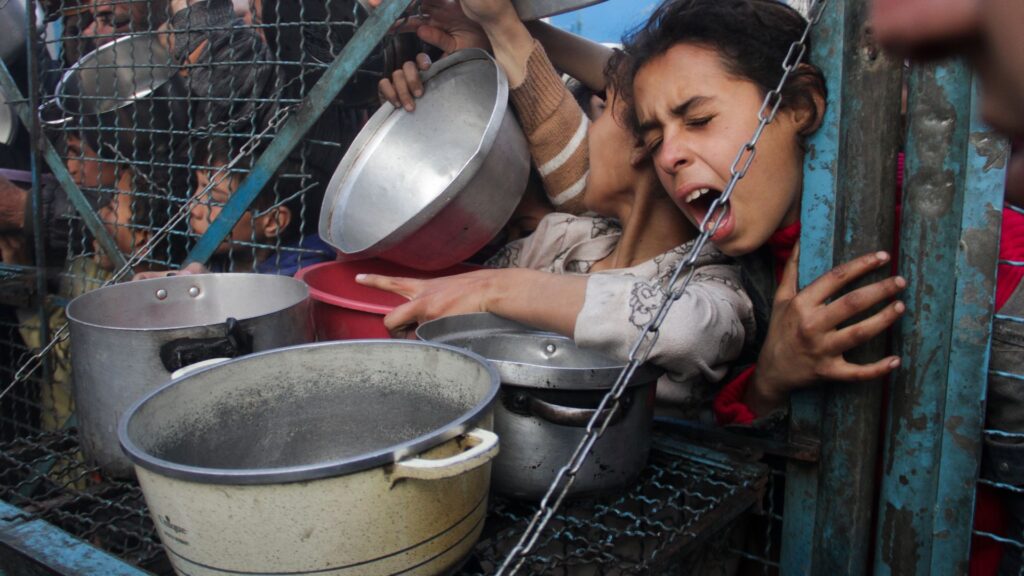Following nearly three months of a humanitarian aid blockade that exacerbated widespread starvation across the Gaza Strip, Israel announced Sunday, May 18, that it would allow a limited amount of humanitarian aid into the region. Israel has blocked all humanitarian aid from entering the beleaguered territory since March 2.
According to The Associated Press, Israeli Prime Minister Benjamin Netanyahu’s Cabinet approved a “basic” amount of food that will be distributed to Gaza’s more than 2 million residents. Netanyahu added that his country is allowing aid in so that it can mitigate the “hunger crisis” and expand its military offensive, which has already killed more than 200 people over the past 48 hours.
The AP notes that it isn’t clear when or how the aid will begin to enter Gaza. However, Netanyahu has vowed that Hamas will not be in control of distribution, nor will the militant group have access to it.
On Saturday, May 17, the Guardian reported that a Swiss-registered organization led by a former U.S. Marine dubbed the Gaza Humanitarian Foundation (GHF) has been tapped by Israel to take over food distribution in Gaza. However, various aid groups and the United Nations are refusing to work with GHF, citing its inability to act independently of the Israeli government, among other reasons.
“Giving Israel power over who receives the aid and where basically turns it into a tool of coercion, and it blurs the line between the humanitarian assistance and Israel’s military objectives, which in turn puts civilians and aid workers at serious risk,” said Bushra Khalidi, a policy lead for the Palestinian territory at Oxfam.
Aid organizations and international officials warn that Gaza is nearing famine. The Integrated Food Security Phase Classification reported that nearly 500,000 people face catastrophic levels of hunger. Another 1 million residents are struggling to access enough food.


